Security and compliance
Data security

- Ensures data does not leave a country
- Securely deliver data directly to browsers and apps within a country
- Declarative controls enforced and logged
- Data loss prevention ensure data does not leave a country

- Fully hardened servers
- Isolated serverless functions
- Business intelligence aggregation functions that do not reveal underlying data

- The source application and identity provider continue to authenticate users and authorize all actions and data access within InCountry Vaults
- The source application continues to provide Role-Based Access Control (RBAC), Attribute-Based Access Control (ABAC), and Policy-Based Access Control (PBAC)
- Data authorization is fine grained to the row and field level

- Each field can have full encryption, searchable encryption, hashes, deterministic hashes
- Bring Your Own Key fully supported across countries
Operational and applications security

- All user activity is logged
- Data governance metadata such as provenance stored with data
- Validation data does not leave a country

- Robust security and privacy by design principles integrated throughout the software development lifecycle.
- Threat modeling and comprehensive penetration testing.
- Architecture and code reviews, both manual and automated.

- Continuous Infrastructure Monitoring (24×7)
- Continuous threat detection, monitoring and response
- On-Call Security Incident Response Team (SIRT) (24×7)
- Regular Internal and External Penetration Testing
- Regular scans, patching and updates
Compliance
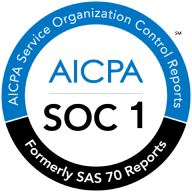
Our internal controls report, conducted in accordance with industry standards (SSAE No. 16 and ISAE No. 3402), demonstrates the effectiveness of our controls on financial reporting. It provides assurance to both our clients and their auditors, ensuring the security and reliability of our services.
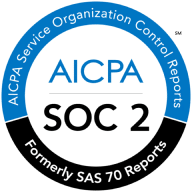
InCountry has obtained a SOC 2 Type II (Service Organization Controls) report based on the AICPA Trust Service Principles (TSP) and Criteria and covers the security, availability, and confidentiality TSPs as they relate to a Cloud Service Provider (CSP).
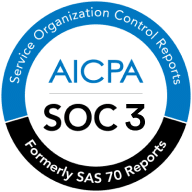
A SOC 3 (Service Organization Controls) report is an abbreviated version of a SOC 2 report and is appropriate for users who want assurance about the Cloud Service Provider’s (CSP) controls but do not require a full SOC 2 report. A SOC 3 report may only be issued if the CSP has an unqualified audit.

Good Clinical Practices, Good Laboratory Practices, and Good Manufacturing Practices (“GxP”) Compliance on the InCountry platform enables a secure and highly available data distribution and localization, aligned the requirements of life science organizations for validated and controlled workloads. Customers will benefit from improved user experience, reduced cost, and improved security.
The Payment Card Industry-Data Security Standard (PCI-DSS) is an industry level information security standard regarding the secure handling of credit card information.

The Health Insurance Portability and Accountability Act (HIPAA) provides U.S. federal protections for patient health information held by Covered Entities (CEs) and Business Associates (BAs).
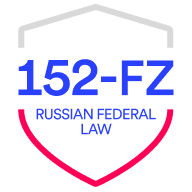
InCountry complies with Federal Law No. 152 and meets industry standards and the InCountry platform satisfies the requirements under the law “On Personal Data”.

The Security Trust Assurance and Risk (STAR) Level 2 Certification is a rigorous third-party independent assessment of the security of a cloud service provider. The certification leverages the requirements of the ISO/IEC 27001:2013 management system standard together with the CSA Cloud Controls Matrix criteria.
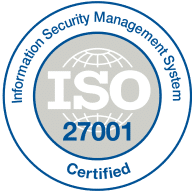
ISO/IEC 27001:2022 is a risk-based set of information security requirements that require an organization to have a well-structured Information Security Management System (ISMS). Maintenance of the system requires annual audits by external auditors, ongoing risk assessments, and continuous improvement of the system.
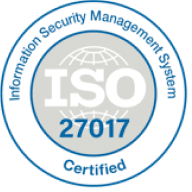
ISO/IEC 27017:2015 provides guidance on the information security aspects of cloud computing, recommending the implementation of cloud-specific information security controls that supplement the guidance of the ISO/IEC 27002 and ISO/IEC 27001 standards. This code of practice provides additional information security controls implementation guidance specific to cloud service providers.
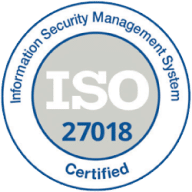
ISO/IEC 27018:2019 is a code of practice that focuses on the protection of personal data in the cloud. It is based on ISO/IEC information security standard 27002 and provides implementation guidance on ISO/IEC 27002 controls applicable to public cloud Personally Identifiable Information (PII).
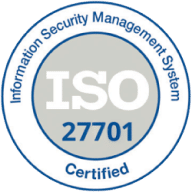
The design goal of ISO 27701 is to enhance the existing Information Security Management System (ISMS) with additional requirements in order to establish, implement, maintain, and continually improve a Privacy Information Management System (PIMS). The standard outlines a framework for Personally Identifiable Information (PII) Controllers and PII Processors to manage privacy controls to reduce the risk to the privacy rights of individuals.
In partnership with Alibaba Cloud

Standard Contractual Clauses (China SCCs) for cross-border transfer of personal information is one of three mechanisms specified in China’s Personal Information Protection Law for transferring personal information outside of China (PIPL).

The China Personal Information Protection Law (PIPL) is China’s new data privacy law, aimed at protecting personal information and addressing personal data leakage issues.

Data Security Law of the People’s Republic of China (DSL), establishes a framework for classifying data collected and stored in China based on its potential impact on Chinese national security and regulating its storage and transfer based on the classification level of the data.

The China Cyber Security Law (CSL), provides cybersecurity requirements for protecting Chinese cyberspace The law safeguards the legal interests and rights of both organizations and individuals in China.

The MLPS 2.0 series standards including “GB/T 22239-2019 Information Security Technology–Baseline for Classified Protection of Cybersecurity”, “GB/T 25070-2019 Information Security Technology–Technical Requirements of Security Design for Classified Protection of Cybersecurity” and “GB/T 28448-2019 Information Security Technology–Evaluation Requirements for Classified Protection of Cybersecurity” apply to the supervision of the development, operation, maintenance and use of networks in China.
Coming soon
Privacy
Privacy by Design
InCountry does not access or sell customer data. Your data is yours.
Our Ethical Stance
Our mission is to help companies expand their business into new countries by addressing data residency and protection challenges. We do so by providing the tools and secure storage services needed to help companies meet the data protection requirements for regulated data, such as Payment Card Information (PCI), Protected Health Information (PHI), Personally Identifiable Information (PII), in the regulated countries in which they operate. InCountry does not collect or store any information beyond what is required to operate the service. We do not handle or store social media posts, text messages, instant messages, personal photographs, or phone logs. InCountry is committed to conducting business with the highest degree of ethical values and has dedicated resources for maintaining compliance with regulatory and legal requirements.
Guidelines for Law Enforcement
For prompt processing law enforcement requests for customer information should be sent by email to:
If your agency or entity must submit requests via mail or in person, our address is:
4023 Kennett Pike #50376
Wilmington, DE 19807